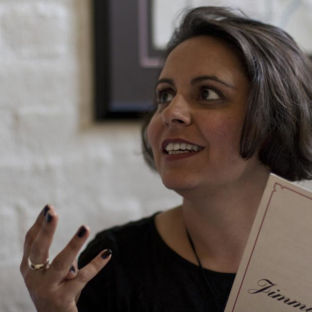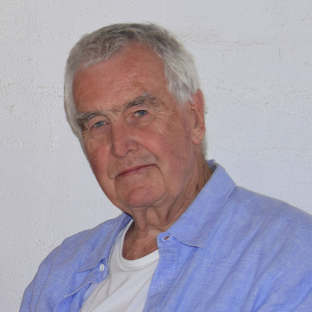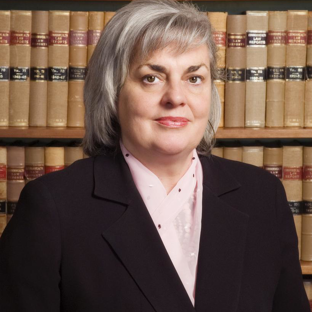Event and Ticketing Details
Dates & Times
Location
The Edge, Fed Square
The Atrium Flinders Street Federation Square Melbourne Victoria 3000
Get directionsThe Edge, Fed Square
The Atrium Flinders Street Federation Square Melbourne Victoria 3000
Get directionsOver four days, our 20 plus speakers – philosophers and theologians, historians and writers, believers and non-believers – will consider what it means to be religious, and what role the voice of faith may legitimately have in the conversations of citizens in a multicultural, democratic state and the community of nations.
On Sunday, two keynote lectures from distinguished international guests each consider challenges posed by – and to – faith in the building of modern communities. Their lectures will be followed by panel discussions with local and international guests.
First, ground-breaking social historian Dipesh Chakrabarty will explore the voice of faith in national identity, speaking from the perspective of India. Chakrabarty’s book Provincializing Europe: Postcolonial Thought and Historical Difference investigates how and in what sense European ideas labelled ‘universal’ are in fact drawn from very specific intellectual traditions. He is one of the founders of subaltern studies, a field that draws on the idea that peasants may play a positive role in effecting social change in ex-colonial countries.
In a panel discussion following Chakrabarty’s address, the conversation will open up to include Sundhya Pahuja, a professor from Melbourne Law School (concerned with the relationship between international law and institutions and the question of global inequality), writer and poet Barry Hill. Justice Susan Crennan, a former Commonwealth Commissioner for Human Rights, will be participating chair.
For the full text of this lecture plus transcripts and recordings of the series, visit our Faith and Culture archive.

Sundhya Pahuja is a professor in the Melbourne Law School, University of Melbourne and the director of the Law and Development Research Programme at the Institute for International Law and the Humanities.
Pahuja’s scholarship is concerned with the relationship between international law and institutions and the question of global inequality. She researches, writes and teaches in the areas of law and development, international law, law and globalisation and legal theory.
Her work engages with the practice, and praxis, of international law and development through political philosophy, political-economy and postcolonial theories. She has worked as a research associate in international law and human rights at the EUI in Florence, practiced as a commercial lawyer, and for several years chaired the committee of management at the Darebin Community Legal Centre.
She is currently a member of the organising committee of the Legal Theory Interest group of the European Society of International Law and serves on the editorial boards of the Australian Feminist Law Journal * and the Law, Social Justice and Global Development Journal *(LGD) based at the University of Warwick.
Her latest book, Decolonizing International: Development, Economic Growth and the Politics of Universality, was awarded the American Society of International Law Certificate of Merit.

Barry Hill is a multi-award winning writer of poetry, history, biography, fiction and reportage.
Reason and Lovelessness is his latest collection of essays variously published in Australia, India and London. It includes ‘satellites’ of his major works – such as Sitting In (1992), a landmark memoir in labour history; Broken Song: TGH Strehlow and Aboriginal Possession (2002), a literary biography on Aboriginal and frontier poetics; and Peacemongers (2014), a pilgrimage book about Rabindranath Tagore and Mahatma Gandhi in the years leading up to the atomic bombing of Hiroshima and Nagasaki.
Other essays are new: ‘Brecht’s Song’, on his working-class mother; ‘Dark Star’, an expansion of his meeting with Christina Stead on her 80th birthday; ‘Loving Roughneck’, his critical appreciation of John Berger; and ‘On the Edge of the Cliff’, on his private meeting with the Dalai Lama in the Blue Mountains.
As has been the case with his book-length works, Hill’s essays collected in Reason and Lovelessness are freshly, deeply researched, genre-crossing, multi-disciplinary, combining the candidly personal with the philosophical.
Hill was born in Australia and educated in Melbourne and London, where he worked as a psychologist and a journalist (the Age and the Times Educational Supplement). He has been writing full-time since 1975.
His short fiction has been widely anthologized, some of it translated into Chinese and Japanese. He writes libretti and has done much work for radio. Broken Song: TGH Strehlow and Aboriginal Possession (Knopf 2002) has been described as ‘one of the great Australian books’ (John Mulvaney) and ‘a major event in Australian high culture’ (Robert Manne). Necessity: Poems 1996-2006 won the ACT’s 2008 Judith Wright Prize. Lines for Birds, collaboration with the painter, John Wolseley, was short-listed for the 2011 Queensland Premier’s Award. His latest book is Naked Clay: Drawing from Lucian Freud.
Hill also worked as a radio critic on the Age for 15 years. Between 1998 and 2008, he was Poetry Editor of the Australian, and between 2005 and 2008 was a post-doctoral fellow at the University of Melbourne. For decades, he has aspired to be a good Buddhist.
Dipesh Chakrabarty is a social historian whose research has transformed understanding of nationalist and postcolonial historiographies, particularly in the context of modern South Asia.
His groundbreaking book Provincializing Europe: Postcolonial Thought and Historical Difference systematically investigated how (and in what sense) European ideas that were labelled ‘universal’ were drawn from very specific intellectual traditions and historical contexts. It was reviewed as a ‘masterful re-examination of rationality, universality, and difference in the postcolonial world [which] should prove inspiring for serious historians of all lands’.
Chakrabarty is currently the Lawrence A. Kimpton Distinguished Service Professor in History, South Asian Languages and Civilizations, and the College. He is also a faculty fellow of the Chicago Center for Contemporary Theory, an associate faculty of the Department of English, holds a visiting professorial fellowship at the Research School of Humanities at the Australian National University, and an honorary professorial fellowship with the School of Historical Studies at the University of Melbourne.
His other books include: Rethinking Working-Class History: Bengal 1890-1940 and Habitations of Modernity: Essays in the Wake of Subaltern Studies. He has also edited (with Carol Breckenridge, Homi Bhabha, and Sheldon Pollock) Cosmopolitanism and (with Bain Attwood and Claudio Lomnitz) The Public Life of History.

Justice Susan Crennan was appointed to the High Court of Australia in November 2005. She had then served for almost two years as a judge on the Federal Court. Justice Crennan has degrees in arts and law and a postgraduate diploma in history. She is an influential supporter of the humanities.
Before her appointment as a judge, Justice Crennan was a barrister for 24 years, 14 of them as Queen’s Counsel. After being appointed Queen’s Counsel, Justice Crennan became chair of the Victorian Bar Council, then president of the Australian Bar Association. She was the first woman to occupy each of those positions.
Justice Crennan was also a Commonwealth Commissioner for Human Rights.